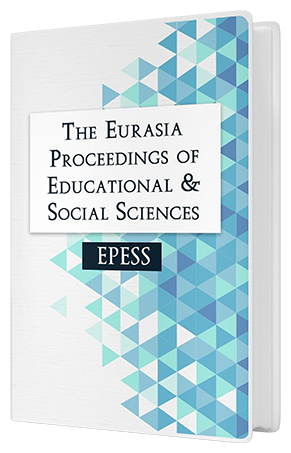TWO MODES OF TEACHERS’ REFLECTION AND EFFECTS ON JSS STUDENTS ACHIEVEMENT IN BASIC SCIENCE
Keywords:
Reflection-in-action, reflection-on-action, teaching strategy, basic scienceAbstract
The study investigated the effect of two mode of Teacher’s Reflection on Junior Secondary School Students achievement in Basic Science. The pretest, posttest control group quasi- experimental design was adopted for the study. The sample was made up of 294 junior secondary students from four Junior Secondary Schools in Ibadan metropolis selected using stratified random Sampling technique. The operational guide for Reflection-in-action, Reflection-on-action and the conventional teaching strategies were developed and used. Also, Basic Science achievement test was also developed and administered by the researcher. Data collected were analyzed using analysis of covariance and description statistics to test the hypothesis at P<0.05 The result shows that the two modes of reflection instructional strategies was more effective than the conventional instructional strategy. The student in Reflection-on-action group had significantly high mean score in achievement test followed by those in reflection –in-action group while the students in control group had the least It is, therefore recommended that the two mode of reflection should be practiced and used by the Basic Science teachers in order to help student gain more in achievement. In-service training programme need to be organized for the Basics Science Teachers to disseminate the effectiveness of reflection-in-action and reflection-on-action teaching strategy.Downloads
Published
Issue
Section
License
Copyright (c) 2017 The Eurasia Proceedings of Educational and Social Sciences

This work is licensed under a Creative Commons Attribution-NonCommercial-ShareAlike 4.0 International License.
The articles may be used for research, teaching, and private study purposes. Any substantial or systematic reproduction, redistribution, reselling, loan, sub-licensing, systematic supply, or distribution in any form to anyone is expressly forbidden. Authors alone are responsible for the contents of their articles. The journal owns the copyright of the articles. The publisher shall not be liable for any loss, actions, claims, proceedings, demand, or costs or damages whatsoever or howsoever caused arising directly or indirectly in connection with or arising out of the use of the research material. All authors are requested to disclose any actual or potential conflict of interest including any financial, personal or other relationships with other people or organizations regarding the submitted work.




